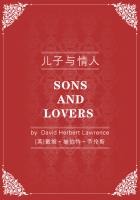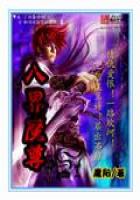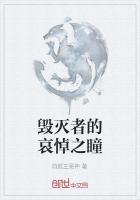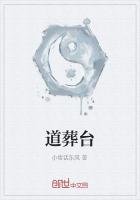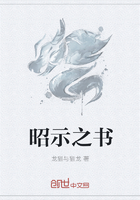“Bless you, Billy!” said the consul. “I knew you wouldn’tdesert me. The world’s bound to come to an end, butmaybe we can stave it off for a day or two.”
Keogh hoisted his umbrella and set out for Goodwin’shouse. Johnny put on his coat and hat. He picked up thebrandy bottle, but set it down again without drinking, andmarched bravely down to the beach.
In the shade of the custom-house walls he found Mr.
Hemstetter and Rosine surrounded by a mass of gapingcitizens. The customs officers were ducking and scraping,while the captain of the Andador interpreted the businessof the new arrivals. Rosine looked healthy and very muchalive. She was gazing at the strange scenes around her withamused interest. There was a faint blush upon her roundcheek as she greeted her old admirer. Mr. Hemstettershook hands with Johnny in a very friendly way. He wasan oldish, impractical man —one of that numerous classof erratic business men who are forever dissatisfied, andseeking a change.
“I am very glad to see you, John—may I call you John?”
he said. “Let me thank you for your prompt answer to ourpostmaster’s letter of inquiry. He volunteered to writeto you on my behalf. I was looking about for somethingdifferent in the way of a business in which the profitswould be greater. I had noticed in the papers that thiscoast was receiving much attention from investors. I amextremely grateful for your advice to come. I sold outeverything that I possess, and invested the proceeds in asfine a stock of shoes as could be bought in the North. Youhave a picturesque town here, John. I hope business willbe as good as your letter justifies me in expecting.”
Johnny’s agony was abbreviated by the arrival of Keogh,who hurried up with the news that Mrs. Goodwin wouldbe much pleased to place rooms at the disposal of Mr.
Hemstetter and his daughter. So there Mr. Hemstetterand Rosine were at once conducted and left to recuperatefrom the fatigue of the voyage, while Johnny went downto see that the cases of shoes were safely stored in thecustoms warehouse pending their examination by theofficials. Keogh, grinning like a shark, skirmished aboutto find Goodwin, to instruct him not to expose to Mr.
Hemstetter the true state of Coralio as a shoe market untilJohnny had been given a chance to redeem the situation, ifsuch a thing were possible.
That night the consul and Keogh held a desperateconsultation on the breezy porch of the consulate.
“Send em back home,” began Keogh, reading Johnny’sthoughts.
“I would,” said Johnny, after a little silence; “but I’vebeen lying to you, Billy.”
“All right about that,” said Keogh, affably.
“I’ve told you hundreds of times,” said Johnny, slowly,“that I had forgotten that girl, haven’t I?”
“About three hundred and seventy-five,” admitted themonument of patience.
“I lied,” repeated the consul, “every time. I never forgother for one moment. I was an obstinate ass for runningaway just because she said ‘No’ once. And I was too prouda fool to go back. I talked with Rosine a few minutesthis evening up at Goodwin’s. I found out one thing. Youremember that farmer fellow who was always after her?”
“Dink Pawson?” asked Keogh.
“Pink Dawson. Well, he wasn’t a hill of beans to her. Shesays she didn’t believe a word of the things be told herabout me. But I’m sewed up now, Billy. That tomfool letterwe sent ruined whatever chance I had left. She’ll despiseme when she finds out that her old father has been madethe victim of a joke that a decent schoolboy wouldn’t havebeen guilty of. Shoes! Why he couldn’t sell twenty pairsof shoes in Coralio if he kept store here for twenty years.
You put a pair of shoes on one of these Caribs or Spanishbrown boys and what’d he do? Stand on his head andsqueal until he’d kicked ’em off. None of ’em ever woreshoes and they never will. If I send ’em back home I’llhave to tell the whole story, and what’ll she think of me?
I want that girl worse than ever, Billy, and now when she’sin reach I’ve lost her forever because I tried to be funnywhen the thermometer was at 102.”
“Keep cheerful,” said the optimistic Keogh. “And let’em open the store. I’ve been busy myself this afternoon.
We can stir up a temporary boom in foot-gear anyhow. I’llbuy six pairs when the doors open. I’ve been around andseen all the fellows and explained the catastrophe. They’llall buy shoes like they was centipedes. Frank Goodwinwill take cases of ’em. The Geddies want about elevenpairs between ’em. Clancy is going to invest the savingsof weeks, and even old Doc Gregg wants three pairs ofalligator-hide slippers if they’ve got any tens. Blanchardgot a look at Miss Hemstetter; and as he’s a Frenchman,no less than a dozen pairs will do for him.”
“A dozen customers,” said Johnny, “for a 4,000 stockof shoes! It won’t work. There’s a big problem here tofigure out. You go home, Billy, and leave me alone. I’ve gotto work at it all by myself. Take that bottle of Three-staralong with you—no, sir; not another ounce of booze forthe United States consul. I’ll sit here tonight and pull outthe think stop. If there’s a soft place on this propositionanywhere I’ll land on it. If there isn’t there’ll be anotherwreck to the credit of the gorgeous tropics.”
Keogh left, feeling that he could be of no use. Johnnylaid a handful of cigars on a table and stretched himself ina steamer chair. When the sudden daylight broke, silveringthe harbor ripples, he was still sitting there. Then he gotup, whistling a little tune, and took his bath.
At nine o’clock he walked down to the dingy little cableoffice and hung for half an hour over a blank. The resultof his application was the following message, which hesigned and had transmitted at a cost of 33:
TO PINKNEY DAWSON, Dalesburg, Ala.
Draft for 100 comes to you next mail. Ship meimmediately 500 pounds stiff, dry cockleburrs. New usehere in arts. Market price twenty cents pound. Furtherorders likely. Rush.




